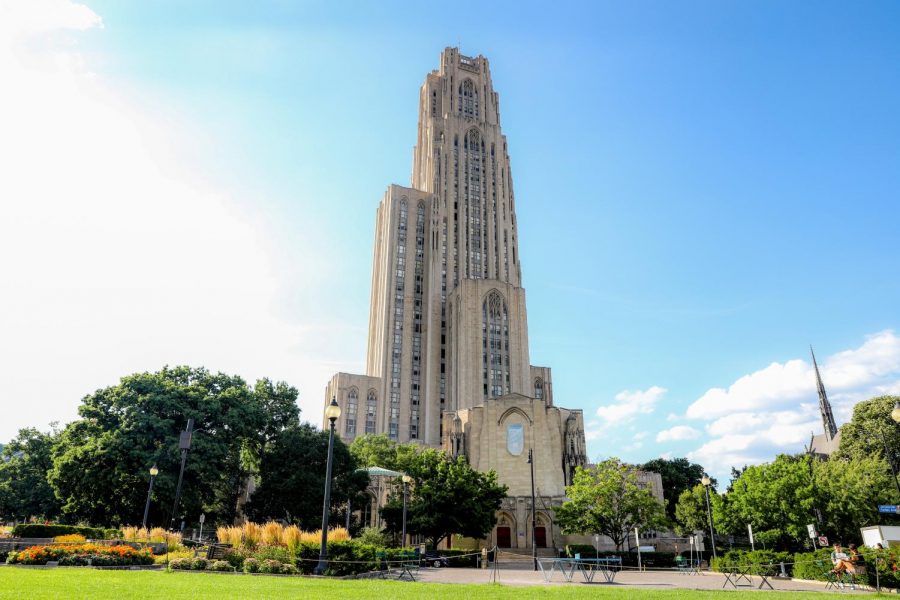Keeping the humanities ‘human’: A look ahead at Dietrich’s fall semester
August 20, 2020
Approximately 3,000 students, more than two-thirds of Pitt’s incoming first-year class, will start their college career at the Dietrich School of Arts and Sciences. Despite the unprecedented circumstances for academia, Gayle Rogers said Pitt’s faculty members have adapted their curriculums to non-traditional learning spaces before and are ready to do it again.
“Our instructors have taught anywhere and everywhere,” Rogers, the chair of Pitt’s English department, said. “Traditional classrooms, in prisons, in outdoor settings, in community centers, in theaters, in film screening rooms, in bookstores and of course online and through digital portals well before we went all-remote back in March.”
According to Carol Mullen, the director of communications and undergraduate recruitment for Dietrich, the upcoming fall semester will add one more non-traditional learning space to that list — a tent. Performing arts students, choral ensembles and small instrumental groups can expect to practice and learn on the Cathedral of Learning’s lawn this semester under a “large, temperature controlled tent” being rented by Dietrich to accommodate safe experiential learning practices, Mullen said.
She also said the school is introducing new courses to assist students in navigating landscapes shaped by the pandemic. Michael Glass, a professor in the Urban Studies program, will look at how globalization, urbanization and public health have changed just this year in his new course “COVID-19 and the City.” Mullen said students can look out for similar courses on PeopleSoft being offered at Dietrich.
Jeff Oaks, the director of undergraduate studies for the writing program, said he hopes the options provided by the new Flex@Pitt teaching model will provide students and faculty another viable learning option besides the often stagnant virtual classroom sessions.
“I think most of us realize that students can’t sit for hours and hours of Zoom meetings — we can’t either,” Oaks said.
Though the University remains unsure when it will be able to offer in-person instruction, Mullen said Dietrich faculty are working to submit their Activity Area Plan to govern the School’s unique needs in meeting the University’s reopening system.
Developing plans for the fall has been especially rigorous within Dietrich, Rogers said, as faculty and staff are working to adapt the interpersonal elements concomitant with a liberal arts education into non-traditional learning environments.
“In some ways, they have been much harder, because the base of the humanities is the human,” Rogers said. “We thrive in the kinds of close, interpersonal settings that the pandemic has made difficult to stage or replicate.”
Rogers said he understands the transition into fall semester will be difficult for all students, staff and faculty across the University, but is excited by the level of community engagement he’s seen this summer in development of the new norm.
“I hope the Pitt students know, whatever Flex@Pitt’s successes or shortcomings prove to be, how much serious, engaged thought and labor the instructors leading their courses have put into transforming their coursework for this year,” Rogers said.
Contributed reporting by Martha Layne.








